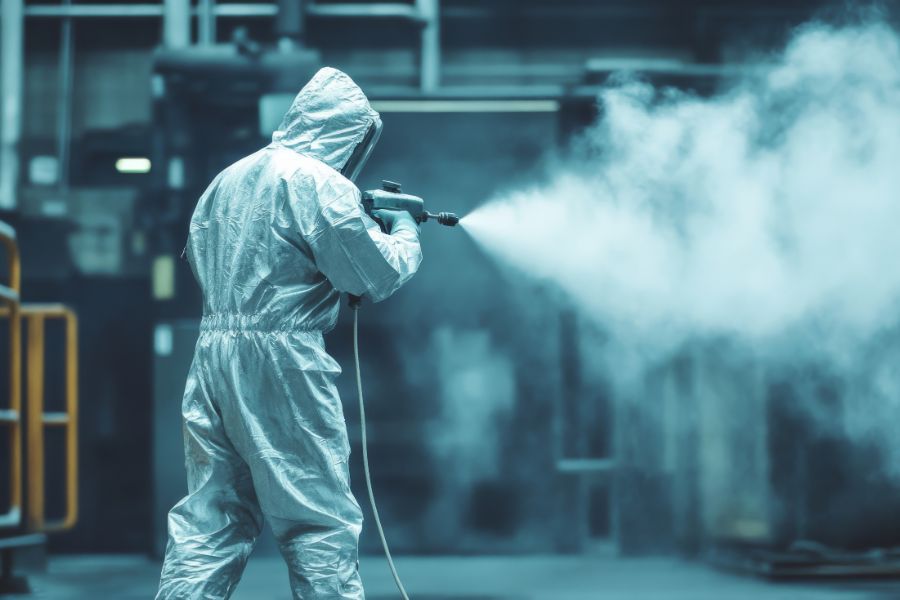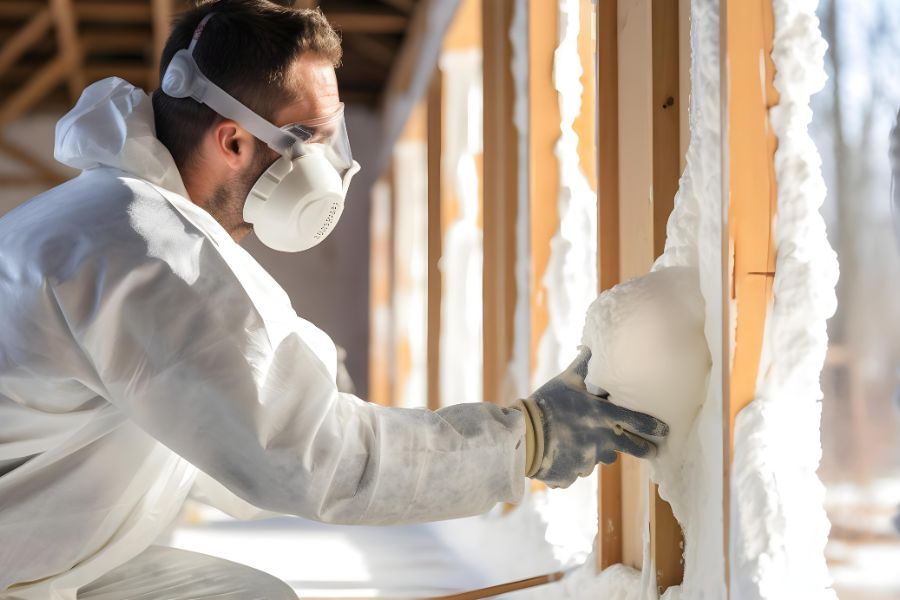8 Benefits of Becoming a Certified Coating Inspector
The coating inspection industry is vital to ensuring the longevity and safety of infrastructure across various sectors such as oil and gas, marine, and construction. Coating inspectors play a critical role in the corrosion protection process, helping prevent damage and failure due to environmental and chemical exposure. Becoming a certified coating inspector offers several career advantages.
Here are the top 8 benefits of earning your coating inspector certification.
Industry Recognition
One of the biggest advantages of becoming a certified coating inspector is the industry-wide recognition of your expertise. Certifications from reputable institutions such as CORCON – Institute of Corrosion, NACE (now Known as AMPP) validate your knowledge and skills, making you a valuable asset to employers. Certification demonstrates your commitment to maintaining industry standards and competence, elevating your professional standing.
Employers seek certified professionals because certification assures them that the inspector has undergone rigorous training and testing. This recognition often leads to increased opportunities, more significant project responsibilities, and career advancement.
High Demand Across Multiple Industries
The demand for certified coating inspectors is strong across various industries, including oil & gas, marine, transportation, energy, and construction. As these sectors continue to expand, there is a growing need for corrosion protection and quality assurance. A certified coating inspector helps ensure that protective coatings are applied correctly to safeguard assets from deterioration.
The certification positions you as a qualified expert who can oversee coating applications and inspections, ensuring compliance with standards and regulations. This widespread demand translates into job security and the potential for long-term career growth.
Increased Earning Potential
Earning your certification can significantly enhance your earning potential. Certified coating inspectors typically command higher salaries than their non-certified counterparts. The specialized knowledge and skills acquired through certification allow professionals to take on more complex and high-stakes projects, leading to better compensation packages.
As industries prioritize asset protection and compliance with safety standards, they are willing to invest in certified professionals who can provide accurate and reliable inspections. The financial benefits of certification often outweigh the costs of the training and examination process.
Enhanced Technical Expertise
Becoming a certified coating inspector is not just about receiving a certificate; it’s about mastering the technical details of coating applications. Certification programs provide in-depth training in areas such as surface preparation, application methods, coating types, and inspection techniques.
This enhanced technical knowledge empowers inspectors to identify potential issues early, ensure proper application, and provide recommendations for coating maintenance. Your expertise will help prevent costly repairs and extend the life of assets, making you an invaluable contributor to project success.
Broader Job Opportunities
A certified coating inspector is equipped to work on various projects, from pipelines and bridges to marine vessels and industrial plants. Certification provides access to a broader range of job opportunities in both local and international markets.
Because corrosion and coating protection are universal concerns, certified professionals are sought after globally. With your certification, you can explore career opportunities in different sectors and regions, opening doors to exciting projects and travel.
Opportunities for Career Advancement
Certification often serves as a stepping stone to higher positions within the industry. It can lead to roles such as senior coating inspector, quality assurance manager, project manager, or even consultancy opportunities. The in-depth knowledge gained from certification, coupled with on-site experience, positions you as a leader in the field.
As you progress in your career, additional certifications or advanced levels, such as Coating Inspector Level 2 or Level 3, can further enhance your qualifications and lead to executive or specialized roles.
Contributing to Safety and Quality Control
Certified coating inspectors play an essential role in upholding safety and quality control standards. Proper coating inspection can prevent catastrophic failures, such as pipeline leaks or structural collapses, which can endanger lives and cause environmental damage.
By becoming certified, you contribute to public safety and environmental protection by ensuring that coating applications meet stringent industry requirements. Your work directly impacts the structural integrity of critical infrastructure, giving you a sense of pride and responsibility in your career.
Keeping Up with Industry Trends
Certification programs are designed to keep professionals up to date with the latest industry trends, regulations, and technological advancements. This ensures that certified coating inspectors are well-versed in modern techniques and best practices.
For instance, as the industry evolves toward using more environmentally friendly coating materials or advanced inspection tools, certification equips you with the knowledge to stay competitive in the marketplace. You’ll be well-positioned to adapt to changes and continue to offer value in an ever-evolving industry.
FAQs: Frequently Asked Questions
What is a coating inspector?
A coating inspector ensures protective coatings are correctly applied to prevent corrosion and structural damage in industries such as oil and gas, marine, and construction.
Why should I become a certified coating inspector?
Certification offers industry recognition, higher earning potential, increased job opportunities, and career advancement in high-demand sectors.
Which certification programs are most recognized for coating inspectors?
Recognized certifications include those from organizations like CORCON – Institute of Corrosion and NACE (now AMPP).
How does certification enhance career opportunities?
Certification equips you with specialized skills, making you eligible for diverse projects across multiple industries, leading to broader job prospects and career growth.
How long does it take to become a certified coating inspector?
The duration varies depending on the certification program, but most involve a combination of classroom training, practical experience, and examinations.
Closing Insights
Becoming a certified coating inspector provides numerous benefits, from industry recognition and increased earning potential to broader job opportunities and career advancement. As a certified professional, you play a vital role in protecting assets from corrosion and contributing to safety and quality assurance. At CORCON – Institute of Corrosion, we offer comprehensive Coating Inspector Programs that prepare you for certification and success in this rewarding field. Whether you’re starting your career or looking to take it to the next level, earning your certification is a strategic investment in your future.
Image Reference: Freepik
Disclaimer: All trademarks, logos, and brand names are the property of their respective owners. All company, product, and service names used in this website are for identification purposes only. Use of these names, trademarks, and brands does not imply endorsement.





